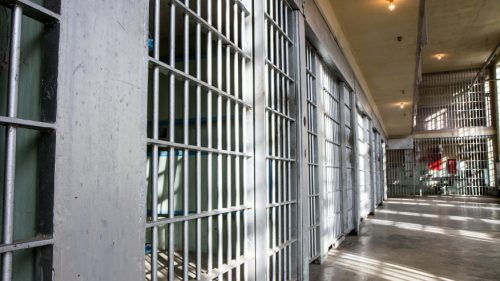

By Ghostwrite Mike and The Mundo Press
CHOWCHILLA, CA – Several months ago, writer, podcaster and former life prisoner Benjamin Frandsen, an award winning PEN America Mentor and the founder of the Ben Free Project nonprofit organization, placed an online order for eighty copies of the book “The Sentences That Create Us: Crafting A Writer’s Life In Prison.”
He intended for them to be distributed for free to VSP’s incarcerated poets thanks to funding support from the Mellon Foundation. When the books arrived and were processed by institutional security authorities they were impounded by VSP management.
PEN America, founded in 1922, stands at the intersection of literature and human rights to protect free expression in the United States and worldwide.
PEN’s Prison Writing Program, founded in 1971 following the Attica riots – now known as the PEN America Prison and Justice Writing Program – is the largest and longest-running initiative supporting the free expression of the country’s incarcerated population.
The editor of ‘The Sentences That Create Us,’ Caits Meissner, advises the Ben Free Project Board of Directors, as do the American Book Award-winning poets Reginald Dwayne Betts and Randall Horton, both of whom contributed to the book.
The impoundment of these books is a “bold encroachment against the writing community at VSP,” says the published incarcerated poet Skyrbe.
He noted the paperback books in question, which posed no threat to institutional order, were processed through the facility warehouse, inspected by the Institutional Security Unit (ISU) and were sitting in the Merced College coordinator’s office to be retrieved and disseminated to participants in the Barz Behind Bars (B³) poetry workshop, before they were impounded.
As the facilitators of the B³ poetry workshop, we are required to disclose our bias in the reporting of this dispute. Serving as the direct investigators we are the informational source.
Frandsen reported to us he’d ordered the books from PEN for delivery. Merced English Professor Jennifer McBride reported to us when she received the books from PEN America and delivered the books to the VSP Warehouse.
Thereafter, Merced College’s program coordinator at VSP, Mr. Toorosian, reported to us when he’d retrieved the books from the warehouse, following them having been cleared by VSP’s ISU.
Then, we confirmed with VSP’s Youth Offender Program (YOP) Resource Officer, Mr. Talley, that he’d personally retrieved the books from Toorosian’s office and deposited them into the office of Supervising Correctional Officer Two Elizabeth Alva, the then coordinator of the YOP at VSP, who has since retired.
We also spoke to Alva’s then-subordinate Brian Hernandez, the YOP’s Correctional Counselor, one at the time.
He told us VSP’s Community Resource Manager (CRM), Carmen Maroney, told him the books “would not be distributed” to the B³ community, based upon her misinformed understanding that the books were shipped from another nonprofit organization, Freedom Reads, as opposed to PEN America.
In September of 2023, Dr. Moira Marquis, Ph.D., the director of PEN America’s Freewrite Program, wrote VSP’s then-Warden Matt McVay a letter about “The Sentences That Create Us Impoundment,” which we have a copy of.
The letter clearly articulates: “Earlier this year, Benjamin Frandsen, an award winning PEN America Mentor, and the Executive Director of the Ben Free Project nonprofit organization, placed an order with us for 80 copies of the book, intending to make them available for use by… resident facilitators of the Barz Behind Bars (B³) literary workshop at VSP.”
Dr. Marquis’s advocacy letter to the VSP Warden offered to “provide return postage for the copies to be mailed back” to the publisher, were the impasse to become attributed “to mail mix-ups” instead of the more intentionally pernicious obstruction we have cause to facially suspect.
To date, VSP has ignored the PEN letter’s overture, and we remain without the use of these gifted literary tools. During the pendency of this dispute, we have lodged a formal appeal with VSP seeking “access and use” of the books, whereby they become accounted for and stored as part of our workshop’s inventory of usable materials.
In previous reporting, we have profiled an array of arts and humanities program-related obstructions at VSP, involving allegations of resident works of art being stolen by staff, artists being prohibited by policy from photographing their creations, musicians of color being refused by policy the personal property use of culturally relevant hip-hop beat-making musical instruments and how theArt of Recovery and Therapy (ART) organizational leisure time committee formed by residents and approved by VSP officials to fundraise and convene its membership, has been prevented from doing so.
There would appear to be, by any objective standard, a systematic pattern of obstruction at VSP that is leaving diverse groups of artists and creators without the agency they feel entitled to exercise, without due cause.
This post was originally published on this site be sure to check out more of their content.






